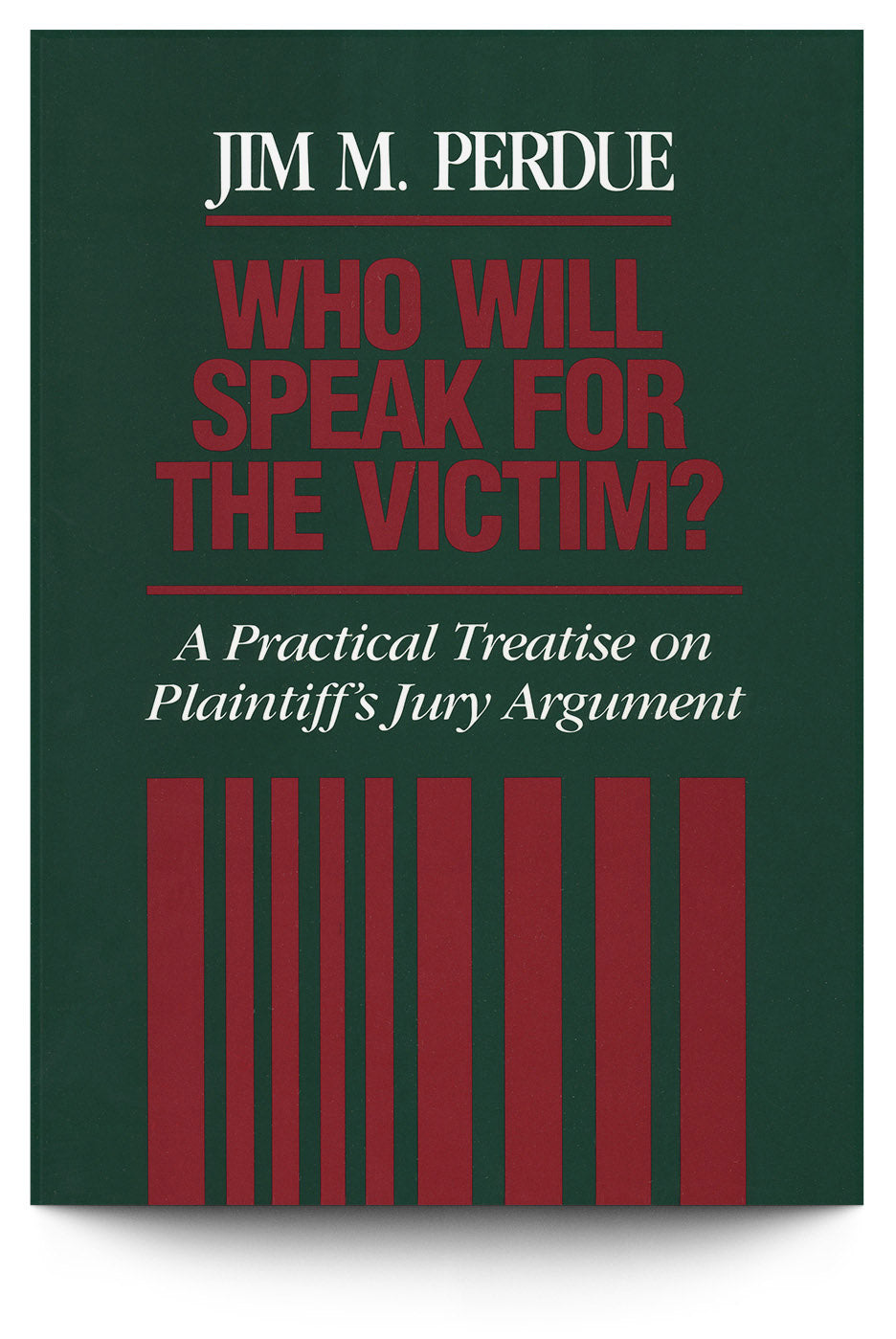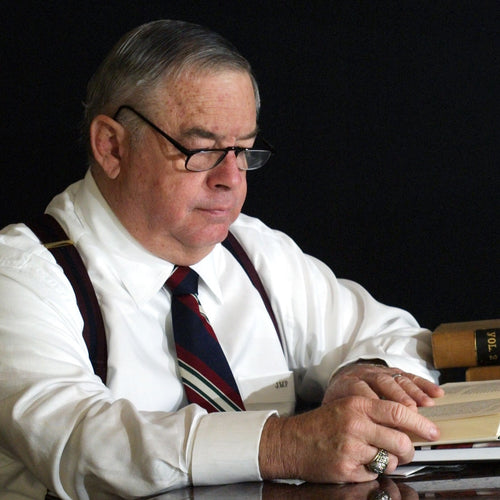Description
Description
The subtitle of Who Will Speak for the Victim? is A Practical Treatise on Plaintiff's Jury Argument, and it is practical. Chapters address methods of arguing liability and damages in various types of personal injury cases, emphasizing the most effective approaches to relating the evidence and argument to the specific questions the jury must answer. If you primarily represent defendants, you will also find it helpful to review techniques the author describes to encourage large verdicts. But the extraordinary thing about this book is that all the practical tips, from basic forensic principles to how to help jurors develop a positive perception of your clients, couched in a cogent wit that is highly entertaining.
Although it is written by a personal injury plaintiff's lawyer, defense counsel, as well as business, corporate, and family lawyers will find that many of the concepts apply to their diverse specialties. Dozens of actual courtroom scenes illustrate jury persuasion and argument techniques that work—and those that don't. Perdue explores basic forensic principles such as posture, movement, vocal tone, pitch, and verbal content in these instructive pages, along with more advanced techniques like the art of subliminal persuasion. This readable book will help every trial advocate not only to develop more compelling arguments but also to present summations that are entertaining and provocative.
For the plaintiff's advocate, chapters address methods of arguing liability and damages in various types of personal injury cases. The last four chapters present complete summations, taken from actual cases, that tie together the techniques and concepts explored throughout the book.
Please note: Trial Guides cannot sell this text outside the United States and its territories.
Author
Author
Details
Details
Hardcover: 434 pages; 1st edition (1989); ISBN: 978-0938160540
Publisher: State Bar of Texas
Table of Contents
Table of Contents
- Letter from the President of the State Bar of Texas
- Preface
- Acknowledgments
- Part 1: The Concept of Forensic Argument
- Interrelation of Argument and the Case
- Preparing the Argument
- Part 2: Concepts of Persuasion
- Levels of Communication-Verbal, Vocal, and Physical
- Subliminal Persuasion
- Technique Versus Style
- Part 3: Physical and Vocal Principles of Argument
- The Trial Lawyer's Appearance
- Posture, Gestures, and Movement
- Demeanor
- Mechanics of Speech
- Part 4: Verbal Principles of Argument
- Selection and Use of Words
- Use of Anecdotes and Poetry
- Use of Similes, Metaphors, and Analogies
- Use of Rhetorical Questions and Embedded Commands
- Part 5: Argument Strategies
- Content of Argument
- How Juries Deliberate
- Part 6: Specific Arguments on Liability
- Arguing Liability-Generally
- Workers' Compensation
- Automobile Cases
- Premises Injuries
- Product Liability
- Medical Malpractice
- Part 7: Specific Arguments on Damages
- Arguing Damages-Generally
- Physical Pain
- Mental Anguish
- Future Damages
- Loss of Earning Capacity
- Death
- Part 8: Illustrative Arguments
- The Case of the Redundant Oxygen-A Product Liability Argument
- The Case of the Nurse Who Wasn't Borrowed-A Hospital Liability Argument
- The Case of the Unknown Future-An Automobile Injury Argument
- The Case of the Errant Surgeon-A Surgical Malpractice Argument
- Bibliography
- Index
What Legal Leaders Are Saying
— Stanley B. Binion Baker, Brown, Sharman and Parker, Houston, TexasAn extraordinary book. Mr. Perdue has spent his entire professional life making an in-depth study of courtroom advocacy and the art of persuasion. In Who Will Speak for the Victim, Mr. Perdue shares his extensive knowledge with those who aspire to be better trial lawyers.
— Frank L. Branson, Law Offices of Frank L. Branson, Dallas, TexasWho Will Speak for the Victim represents the best collection of a trial lawyer’s thoughts on effective jury communication that I have seen. This book will be helpful to a trial lawyer at any stage of his or her career.
— Honorable Eugene A. Cook, Justice Supreme Court of TexasThis masterful work will be invaluable to all who enter the courtroom, regardless of their area of practice. Every trial lawyer will wish to make this volume part of his or her law library.
— James B. Sales, Fulbright and Jaworski, Houston, TexasIn these instructive and entertaining pages, author Jim Perdue distills a wealth of trial experience and presents a superbly crafted work that will benefit the novice and the seasoned trial lawyer alike.
— Terry O. Tottenham, Fulbright and Jaworski, Houston, TexasRarely are books for lawyers both educational and entertaining. Who Will Speak for the Victim meets each of those criteria. Even rarer is the opportunity to learn the tricks of the trade from a trial master.




